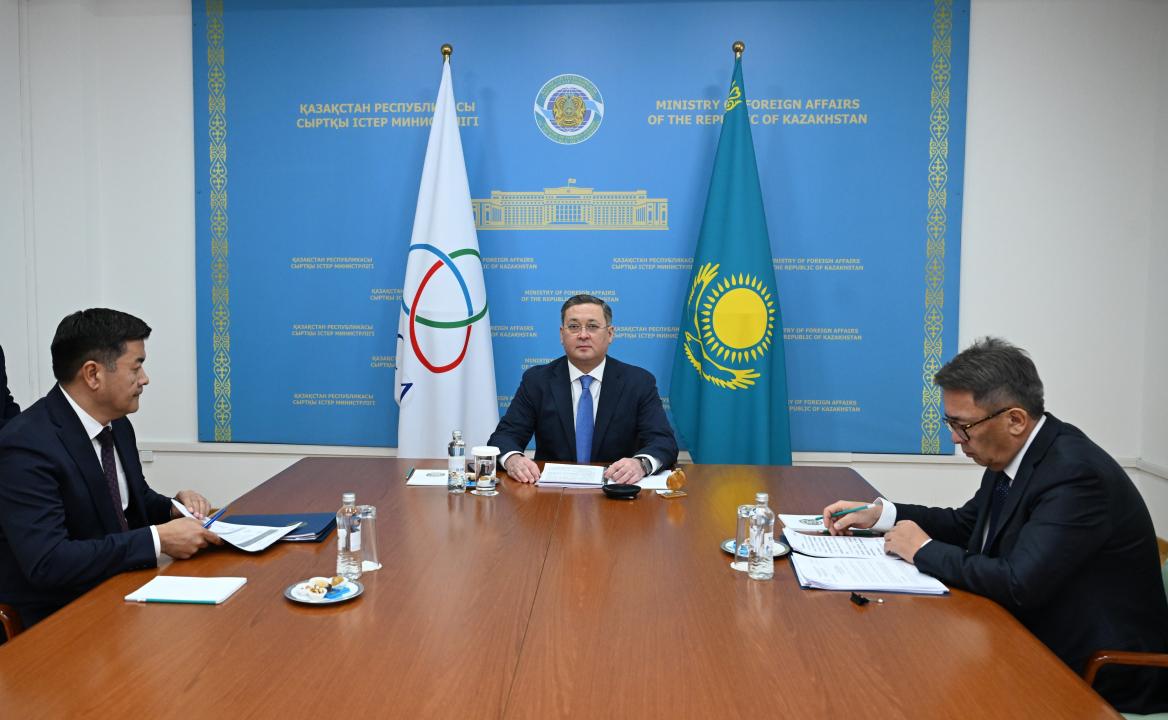ASTANA – Kazakhstan officially handed over the chairmanship in the Conference on Interaction and Confidence Building Measures in Asia (CICA) for 2024-2026 term to Azerbaijan at the seventh meeting of the Council of Foreign Affairs Ministers on Dec. 17.

Murat Nurtleu reiterated Kazakhstan’s commitment to ongoing growth of CICA and expressed confidence that the CICA, given its unique structure and geography, has significant possibilities and a bright future. Photo credit: Foreign Ministry.
During the meeting, Kazakh Deputy Prime Minister and Foreign Minister Murat Nurtleu outlined Kazakhstan’s four-year CICA chairmanship, highlighting the organization’s significant achievements during this time, reported the Foreign Ministry’s press service.
Special focus was dedicated to the transformation process that began during the sixth CICA Summit in Astana in October 2022. According to the Transformation Roadmap, which was adopted in September 2023, Kazakhstan’s chairmanship created and initiated the deliberation process for the CICA’s draft charter. Kazakhstan established three new advisory groups during the aforementioned period: the Think Tank Forum, the Council of Eminent Persons, and the CICA Fund.
Nurtleu underlined Kazakhstan’s foreign policy priorities in transit and transport connectivity, information and communication technology development and climate change. He reiterated Kazakhstan’s commitment to ongoing growth of CICA and expressed confidence that the CICA, given its unique structure and geography, has significant possibilities and a bright future.
The meeting participants adopted a number of documents, including a Statement on the 25th anniversary of the Declaration on the Principles guiding relations among Member States, Decision on Modalities of implementation of confidence building measures and an updated Catalog of Confidence Building Measures, as well as launched a Partner Network of Leading Universities of the Member States.
Following the event, CICA member states highly evaluated Kazakhstan’s CICA chairmanship, noting the significant progress in institutionalization of the Conference.
The event was attended by the heads of foreign affairs offices of the CICA member states and observer countries, including the ministers of Azerbaijan, China, Pakistan, Bangladesh, Sri Lanka, Tajikistan, Uzbekistan, as well as representatives of nine international organizations, including the UN, the International Organization for Migration, the League of Arab States, the Turkic Parliamentary Assembly, the Economic Cooperation Organization, the Shanghai Cooperation Organization, the EEC, and the UN Office on Drugs and Crime.
